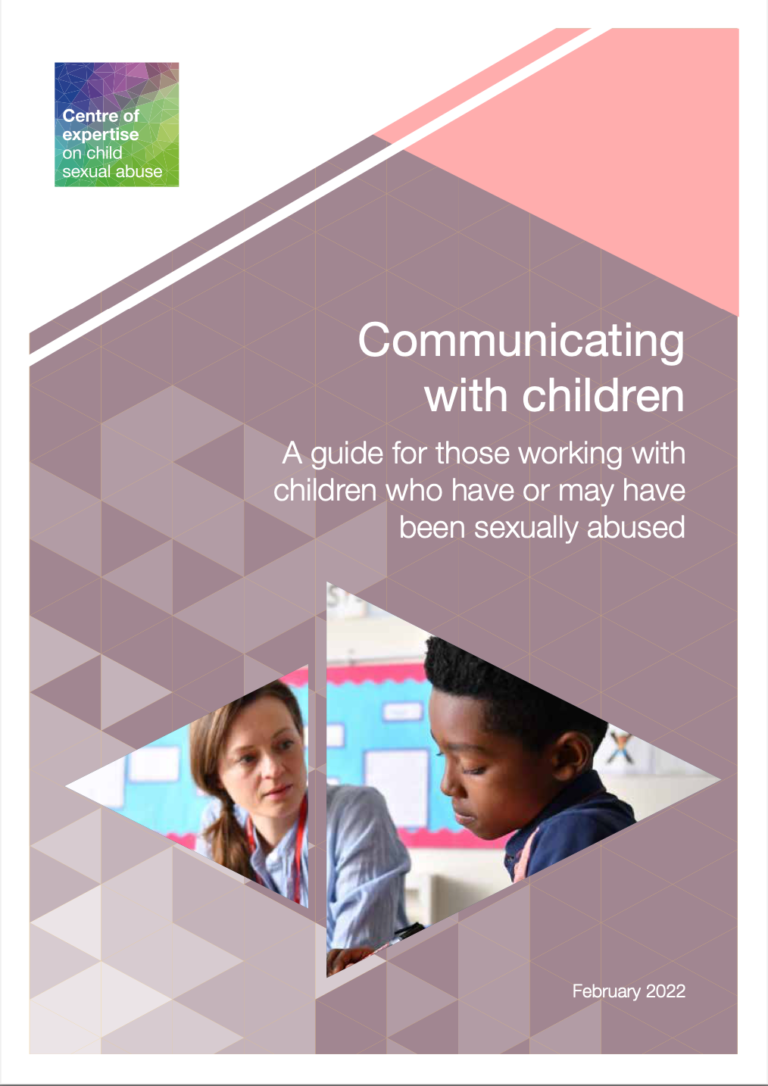Sexual abuse can be difficult to think about and to talk about: it can feel complex, emotional and even scary. You might worry about ‘getting it wrong’, having to have difficult conversations, ‘opening a can of worms’, and not knowing what to say or how to respond. You might also worry about ‘contaminating evidence’ – saying the wrong thing to a child by asking a leading question which may jeopardise a criminal trial.
However, it is important to recognise that you can talk to a child in many ways without fear of affecting a criminal trial – and to remember that the child’s welfare should be the paramount consideration. Fear of getting it wrong can prevent you from asking children anything at all, yet research shows that they need ‘help to tell’.
This guide aims to help you communicate with children in relation to child sexual abuse, including when you have concerns that such abuse is happening.

